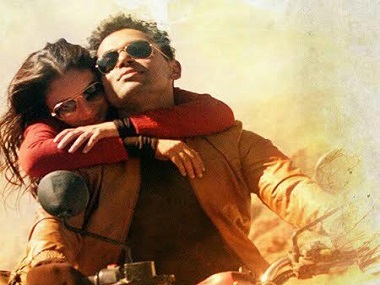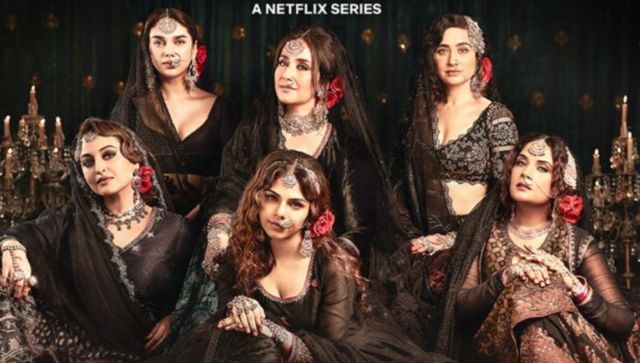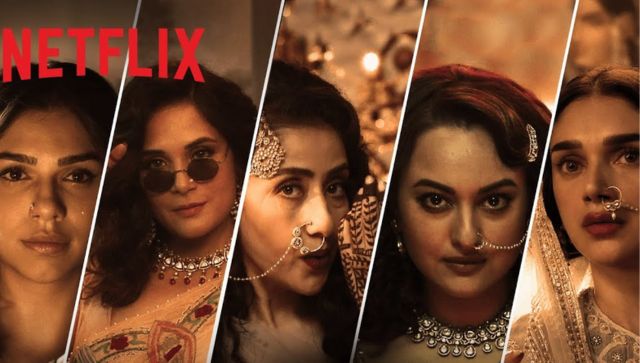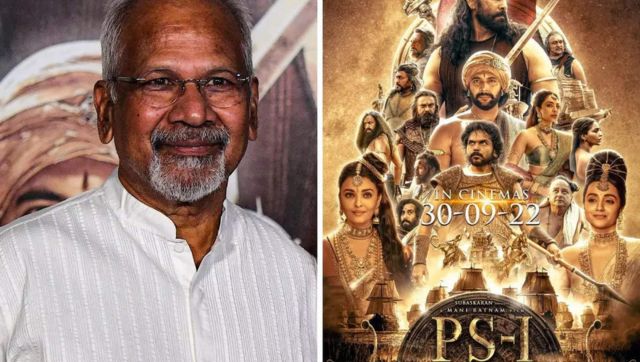In the opening sequence of Mani Ratnam’s Kaatru Veliyidai, VC (Karthi) is locked in a prison in Pakistan, pining for his lover, Leela (Aditi Rao Hydari). With the profound words that VC uses to describe his love — set to a montage of a dreamy, doe-eyed Leela trotting in Kashmir in Anokhi and FabIndia cottons — the viewer is invited into the story, promised to be about great passions. Unfortunately, what is witnessed is a glorification of abuse as romance.
Romanticised violence, especially towards women is a (unfortunately) common television/film trope. Brooding men, angry men, violent men, jealous men are packaged as desirable and the their abuse is quoted as passion — the women these men fall in love with are their fix. VC’s inflated sense of self, misogyny, emotional manipulation, controlling behaviour and misbehaviour is addressed as arrogance and recklessness (by him during his introspective soliloquy) — of him having a different personality than Leela’s. VC’s callous attitude towards his ex-girlfriend and breaking it off with her by reciting Bharatiyar comes off as a quirk. VC’s problematic behaviour is normalised by passing him off as an attractive ‘troublemaker’.
Perhaps the film is an attempt to empathise with the abuser — to figure out the relationship between a broken man and a woman who wants to fix the brokenness. When there is no doubt that VC is troubled, a passing (patchy, random, extremely brief) family experience highlights the troubled relationship between VC and his father, who is also an abuser. Yet, in all the times that we witness VC humiliating the doe-eyed Leela in front of his friends, physically hurting her or emotionally manipulating her, there is an undertone of a grand romance. When he comes to her seeking forgiveness quoting Bharatiyar, this time the Tamil poet helps gain that forgiveness. There’s not enough in there to even buy into that romance — other than singing ‘Azhagiye, Marry Me’ or hugging each other ahead of a snowstorm, when did the duo really fall in love? What is it that bound them together? Her doe eyes, or his pout? Leela’s love is also questionable — she had a grand idea of VC even before meeting him through her (late) brother’s letters. Leela, herself, had a larger than life idea of VC, his ‘arrogance and recklessness’ perhaps strengthened the idea of VC, whereas his behaviour in reality was wrong.
The ‘opposites attract’ dynamic that is much celebrated in the film is misplaced and at best superficial. VC kills for a living, Leela saves lives (when she isn’t prancing off to Leh or the flying club in unsuitable clothing — the aforementioned Anokhi and FabIndia cottons — for the Kashmir cold). VC and Leela are not oppositional personalities as such. VC is abusive, his abuse is not a product of his great love for Leela but a manifestation of a troubled past, witnessing his father mistreat his mother, internalising that misogyny. It’s hugely problematic that Leela expressing an opinion and VC humiliating her in front of everyone is being addressed as a mere difference in personality.
Leela and VC could very well be madly in love, but the unequal, dangerous and abusive dynamic between them is not addressed — missing the woods for the trees. The story is not about VC escaping from a prison in Pakistan, the story is about why VC and Leela are unsuited, why do men abuse? Why does she stay? What lies in the recesses of VC’s mind? Why does Leela want VC’s approval? Why does she seek permission from him before screaming with joy in the airplane? What makes these two individuals want to come back to each other? There is a great deal of psychology that lies unexplored and the nuances of a troubled relationship (fundamentally troubled men and women) are not tackled, rendering the film and the characters woefully one-dimensional. The issues of male gaze and institutional violence lie unchallenged in this poorly edited (but gorgeous looking) film.
“…Even pretending you aren’t catering to male fantasies is a male fantasy: pretending you’re unseen, pretending you have a life of your own, that you can wash your feet and comb your hair unconscious of the ever-present watcher peering through the keyhole, peering through the keyhole in your own head, if nowhere else. You are a woman with a man inside watching a woman. You are your own voyeur.” (Margaret Atwood, The Robber Bride)
“Rani madhiri nadathura illa keela pottu midhikkira (You either treat me like a princess or you walk all over me),” Leela tells VC . In another instance, she says, “You treat me like a dog or a slave and expect me to be at your beck and call.” Leela asks VC, “Should I not have an opinion because I am a woman? Are women only good for making babies?” She implores, “I want an equal relationship. This won’t work out for me.”
Leela’s self-awareness is her own unbecoming as she merely mouths these words rarely able to convince the viewer that she means them. It’s not her fault — the script didn’t give her room to develop as a character. As she shivers in Kashmir’s biting cold in the light, breezy cotton dresses (Leela seems to be unaware of a material called wool), it becomes clear that these words in the movie, are words that Mani Ratnam’s heroines are supposed to say, catering to the woman with a man inside watching a woman.


)




)
)
)
)
)
)
)
)